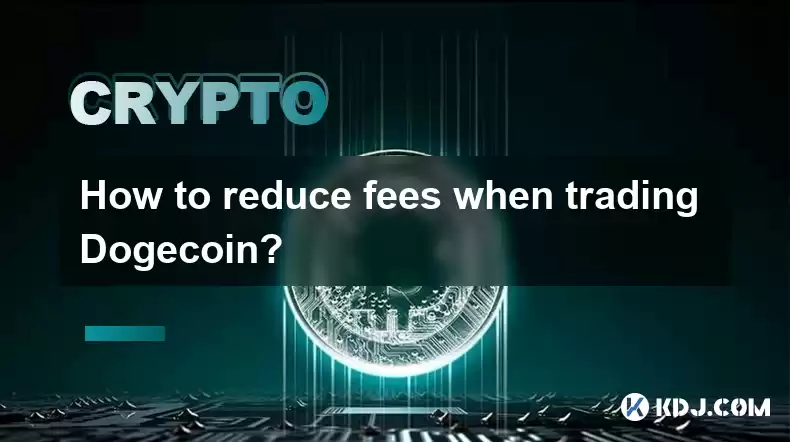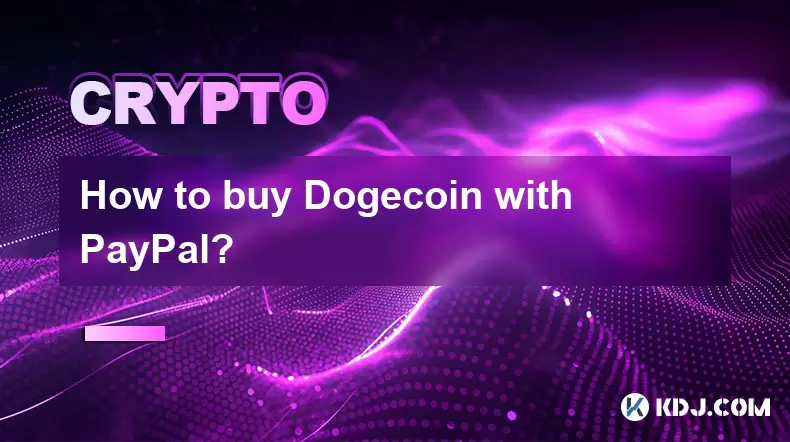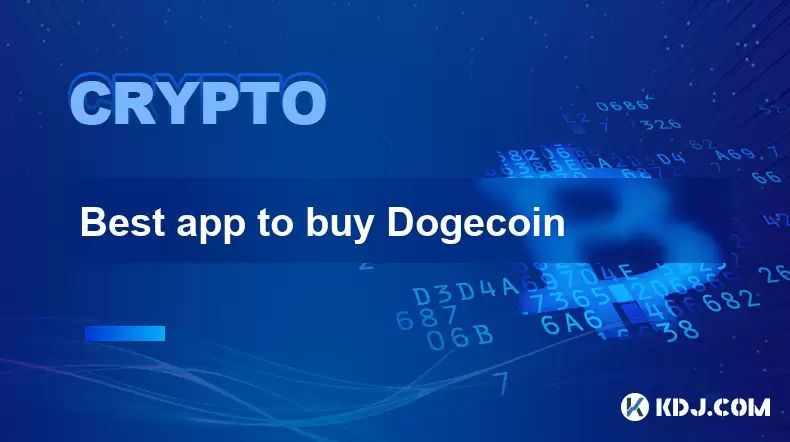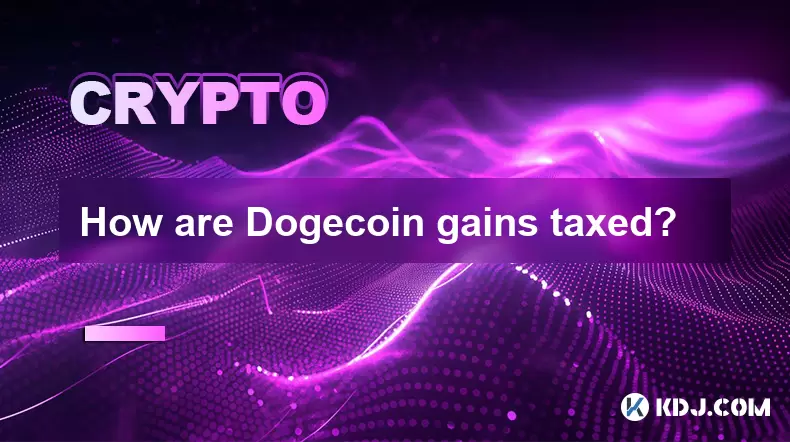-
 bitcoin
bitcoin $87959.907984 USD
1.34% -
 ethereum
ethereum $2920.497338 USD
3.04% -
 tether
tether $0.999775 USD
0.00% -
 xrp
xrp $2.237324 USD
8.12% -
 bnb
bnb $860.243768 USD
0.90% -
 solana
solana $138.089498 USD
5.43% -
 usd-coin
usd-coin $0.999807 USD
0.01% -
 tron
tron $0.272801 USD
-1.53% -
 dogecoin
dogecoin $0.150904 USD
2.96% -
 cardano
cardano $0.421635 USD
1.97% -
 hyperliquid
hyperliquid $32.152445 USD
2.23% -
 bitcoin-cash
bitcoin-cash $533.301069 USD
-1.94% -
 chainlink
chainlink $12.953417 USD
2.68% -
 unus-sed-leo
unus-sed-leo $9.535951 USD
0.73% -
 zcash
zcash $521.483386 USD
-2.87%
How to reduce fees when trading Dogecoin?
To minimize Dogecoin transaction fees, choose a wallet with adjustable fees, batch transactions, trade during off-peak hours, and stay informed about network conditions.
Mar 28, 2025 at 12:14 pm

Understanding Dogecoin Transaction Fees
Dogecoin, like other cryptocurrencies, relies on miners to validate and add transactions to the blockchain. Miners are incentivized by transaction fees, meaning higher fees generally result in faster transaction processing. Understanding this fundamental mechanism is crucial to minimizing your costs. The fee you pay isn't a fixed amount; it's a suggestion you offer to miners. Lower fees might mean longer confirmation times, while higher fees typically lead to quicker confirmations.
Choosing the Right Wallet
The wallet you use significantly impacts transaction fees. Some wallets offer more control over fee settings than others. Hardware wallets often allow for precise fee adjustments, but might not be as user-friendly as software options. Software wallets, while convenient, may offer less granular control over fees. Exchange wallets usually have their own fee structures, which are often higher than those of independent wallets. Carefully compare the fee structures of different wallets before selecting one.
Adjusting Transaction Fees Manually
Many wallets allow you to manually adjust the transaction fee. This gives you direct control over the speed and cost of your transaction. The fee is usually expressed in DOGE. Experimenting with different fee amounts can help you find the optimal balance between speed and cost. However, setting the fee too low might result in your transaction being delayed indefinitely or never being processed.
- Open your Dogecoin wallet.
- Initiate a transaction (send DOGE).
- Look for a 'fee' or 'transaction fee' setting.
- Adjust the fee according to your desired speed. Start with a low fee and increase it if necessary.
- Review the transaction details before confirming.
Batching Transactions
Combining multiple Dogecoin transactions into a single batch can significantly reduce your overall fees. This is because the miner only receives one transaction fee for processing the entire batch, rather than multiple fees for individual transactions. This method is particularly effective for sending smaller amounts of DOGE to multiple recipients. Many wallets don't explicitly support batching, but you can achieve a similar effect by carefully timing your transactions.
Off-Peak Trading
Transaction fees can fluctuate depending on network congestion. During periods of high network activity, fees tend to be higher. Trading during off-peak hours can lead to lower fees. This requires some monitoring of network activity, but it's a simple strategy to save money. Consider using tools that track network congestion to optimize your trading times.
Utilizing Dogecoin's Low Base Fee
Dogecoin is known for its relatively low base transaction fees compared to some other cryptocurrencies. While you can't completely eliminate fees, understanding the base fee and how it interacts with your chosen fee amount helps in making informed decisions. Always factor the base fee into your calculations to avoid unexpected costs.
Understanding Priority Fees
Some wallets offer a 'priority' or 'accelerated' fee option. These higher fees guarantee faster transaction processing. While convenient, they are significantly more expensive than standard fees. Only use priority fees when absolutely necessary, such as for time-sensitive transactions. Weigh the cost against the urgency of your transaction.
Avoiding Unnecessary Transactions
Minimize the number of transactions you make. Each transaction incurs a fee, so consolidating your transactions can lead to significant savings over time. For example, if you need to send DOGE to multiple people, consider sending it all in one transaction if possible. Plan your transactions carefully to avoid unnecessary fees.
Exploring Alternative Payment Methods
While not directly related to reducing Dogecoin transaction fees, consider exploring alternative payment methods if fees are a major concern. For example, if you're making frequent small transactions, a different cryptocurrency with lower fees might be more suitable. However, remember that switching cryptocurrencies involves its own set of costs and complexities.
Choosing a Reputable Exchange
When using exchanges to trade Dogecoin, choose a reputable one with transparent and competitive fee structures. Compare fee schedules across different exchanges before committing to one. Hidden fees can significantly increase your overall costs. Always read the terms and conditions carefully before using any exchange.
Keeping Up-to-Date with Network Conditions
Network congestion and other factors can influence transaction fees. Staying informed about the current state of the Dogecoin network helps you anticipate and adjust to fee fluctuations. Following relevant news and using network monitoring tools can help you optimize your trading strategy.
Frequently Asked Questions
Q: Are Dogecoin transaction fees fixed?A: No, Dogecoin transaction fees are not fixed. They are dynamic and depend on network congestion and the fee you set. Higher fees generally lead to faster confirmation times.
Q: How can I check the current Dogecoin network congestion?A: Several websites and tools provide real-time data on Dogecoin network congestion. These resources can help you determine the optimal time to send transactions to minimize fees.
Q: What happens if I set the transaction fee too low?A: If you set the transaction fee too low, your transaction might take a very long time to confirm, or it might not be confirmed at all. Miners prioritize transactions with higher fees.
Q: Are there any Dogecoin wallets that automatically optimize transaction fees?A: Some wallets offer features that suggest appropriate fees based on network conditions, but completely automated optimization isn't always available. Manual adjustment often provides more control.
Q: Can I reduce fees by using a specific type of Dogecoin wallet?A: While some wallets might offer more granular control over fees, allowing for more precise adjustments, the core fee mechanism remains the same across different wallets. The choice of wallet primarily affects the user experience and level of control.
Disclaimer:info@kdj.com
The information provided is not trading advice. kdj.com does not assume any responsibility for any investments made based on the information provided in this article. Cryptocurrencies are highly volatile and it is highly recommended that you invest with caution after thorough research!
If you believe that the content used on this website infringes your copyright, please contact us immediately (info@kdj.com) and we will delete it promptly.
- Blockchains, Crypto Tokens, Launching: Enterprise Solutions & Real Utility Steal the Spotlight
- 2026-01-31 12:30:02
- Crypto Market Rollercoaster: Bitcoin Crash Recovers Slightly Amidst Altcoin Slump and Lingering Fear
- 2026-01-31 13:10:01
- Solana's Stumble and APEMARS' Rise: Crypto Investors Navigate Volatile Markets
- 2026-01-31 13:05:01
- Bitcoin Options Delta Skew Skyrockets, Signaling Intense Market Fear Amidst Volatility
- 2026-01-31 13:00:02
- Cardano Secures Tier-One Stablecoin: USDCX Arrives Amidst Global Regulatory Push
- 2026-01-31 13:00:02
- A Shining Tribute: Oneida Woman, Washington's Army, and the New $1 Coin
- 2026-01-31 12:55:01
Related knowledge

Bitcoincoin burning mechanism
Jul 20,2025 at 09:21pm
What is the Dogecoin burning mechanism?The Dogecoin burning mechanism refers to the process of permanently removing DOGE tokens from circulation by se...

How to earn free Bitcoincoin?
Jul 19,2025 at 10:08pm
What is Dogecoin and Why Earn It?Dogecoin (DOGE) started as a meme-based cryptocurrency in 2013 but has grown into a widely recognized digital asset. ...

Is Coinbase a good wallet for Bitcoincoin?
Jul 19,2025 at 04:42pm
Understanding Coinbase as a Wallet Option for DogecoinWhen considering where to store Dogecoin, Coinbase is often mentioned as a potential option due ...

How to buy Bitcoincoin with PayPal?
Jul 23,2025 at 06:57am
Understanding the Basics of Buying DogecoinBefore diving into the process of buying Dogecoin with PayPal, it’s essential to understand what Dogecoin i...

Best app to buy Dogecoin
Jul 23,2025 at 03:08pm
What Is a Cryptocurrency Exchange and How Does It Work?A cryptocurrency exchange is a digital marketplace where users can buy, sell, or trade cryptocu...

How are Dogecoin gains taxed?
Jul 25,2025 at 07:01am
Understanding the Taxation of Dogecoin GainsWhen it comes to Dogecoin (DOGE), many investors are drawn to its meme-inspired branding and volatile pric...

Bitcoincoin burning mechanism
Jul 20,2025 at 09:21pm
What is the Dogecoin burning mechanism?The Dogecoin burning mechanism refers to the process of permanently removing DOGE tokens from circulation by se...

How to earn free Bitcoincoin?
Jul 19,2025 at 10:08pm
What is Dogecoin and Why Earn It?Dogecoin (DOGE) started as a meme-based cryptocurrency in 2013 but has grown into a widely recognized digital asset. ...

Is Coinbase a good wallet for Bitcoincoin?
Jul 19,2025 at 04:42pm
Understanding Coinbase as a Wallet Option for DogecoinWhen considering where to store Dogecoin, Coinbase is often mentioned as a potential option due ...

How to buy Bitcoincoin with PayPal?
Jul 23,2025 at 06:57am
Understanding the Basics of Buying DogecoinBefore diving into the process of buying Dogecoin with PayPal, it’s essential to understand what Dogecoin i...

Best app to buy Dogecoin
Jul 23,2025 at 03:08pm
What Is a Cryptocurrency Exchange and How Does It Work?A cryptocurrency exchange is a digital marketplace where users can buy, sell, or trade cryptocu...

How are Dogecoin gains taxed?
Jul 25,2025 at 07:01am
Understanding the Taxation of Dogecoin GainsWhen it comes to Dogecoin (DOGE), many investors are drawn to its meme-inspired branding and volatile pric...
See all articles





















![Ultra Paracosm by IlIRuLaSIlI [3 coin] | Easy demon | Geometry dash Ultra Paracosm by IlIRuLaSIlI [3 coin] | Easy demon | Geometry dash](/uploads/2026/01/31/cryptocurrencies-news/videos/origin_697d592372464_image_500_375.webp)




















































